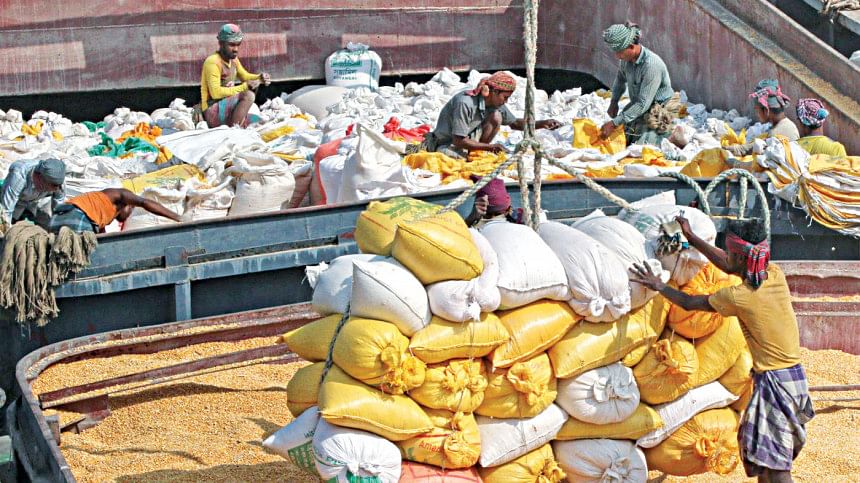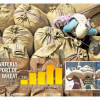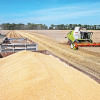Wheat consumption in Bangladesh may drop 10pc: USDA

Bangladesh's overall wheat consumption is likely to drop 10 per cent to 69 lakh tonnes in the marketing year of 2022-23 as high market prices and lower supply of wheat and wheat flour are reducing consumer demand, according to the US Department of Agriculture (USDA).
The agency earlier forecasted Bangladesh's wheat consumption at 77 lakh tonnes for the current year 2022-23.
The prediction comes at a time when the prices of wheat, the second-most consumed cereal after rice, hit a record high in Bangladesh for drop in imports and high prices.
During October, the average retail price of unpacked coarse wheat flour, locally known as called aata, was Tk 55 per kilogramme, up approximately 70 per cent from October of last year.
The average retail price of fine quality unpacked wheat flour, known in Bangladesh as maida, rose to a record high of Tk 65 per kilogramme in October 2022.
The US agency said wheat flour (both aata and maida) is used for the bread and bakery industry, restaurants and household consumption in Bangladesh.
"Household consumption of aata and maida, in particular, has fallen significantly in the last few months and the prices of wheat-based bakery and restaurant products have also increased," it said in Grain and Feed Update on Bangladesh released last week.
The USDA also revised its previous forecast regarding the use of wheat as feed for poultry, aqua, and cattle.
"Sometimes, the feed industry uses wheat bran and rice bran alternatively," it said, adding that feed and residual use of wheat fell to 500,000 tonnes, down about 17 per cent from its official forecast of 600,000 tonnes on higher prices reducing inclusion in animal feed.
The Washington-based agency said the retail price of wheat flour in Bangladesh has been rising consistently since March 2022 due to Russia's invasion of Ukraine, supply chain disruptions, and the higher international price of wheat.
"India's wheat export ban on May 13, 2022, aggravated the situation further. Depreciation of the Bangladesh taka against the US dollar is also increasing the price of wheat flour, as most wheat is imported," it added.
It said high wheat flour prices will continue as Bangladesh is only able to import half of its monthly wheat requirement of 600,000 tonnes.
The agency revised its prediction regarding Bangladesh's wheat import by 21 per cent year on year to 55 lakh tonnes in the marketing year 2022-23 from 70 lakh tonnes as the local industry exhibited sluggish import volumes due to higher international prices and lower supply.
Between July 1 and October 6 of the fiscal year beginning from July 2022, Bangladesh's wheat import declined 4 per cent year on year 3,84,000 tonnes, according to food ministry data.

 For all latest news, follow The Daily Star's Google News channel.
For all latest news, follow The Daily Star's Google News channel. 








Comments